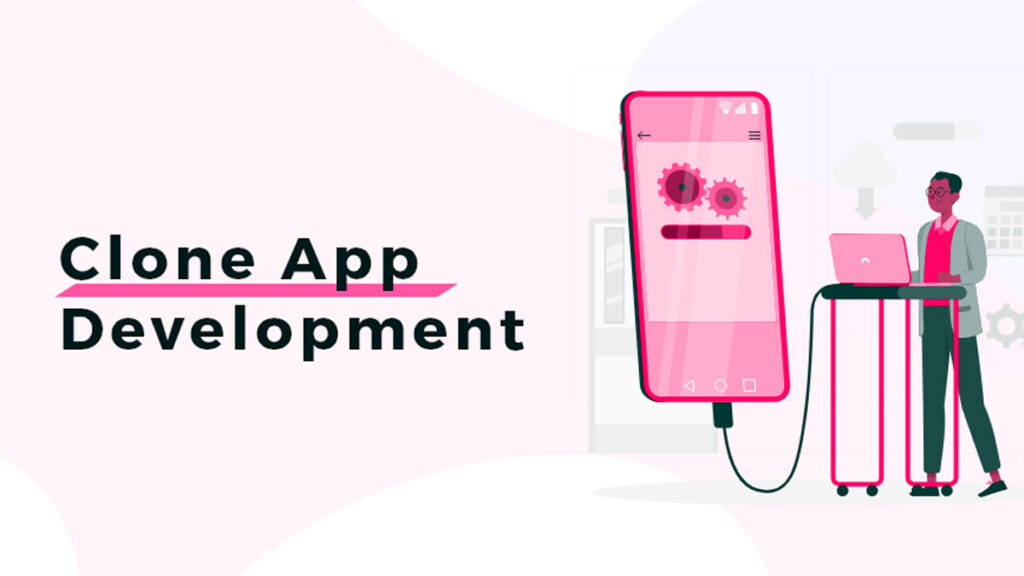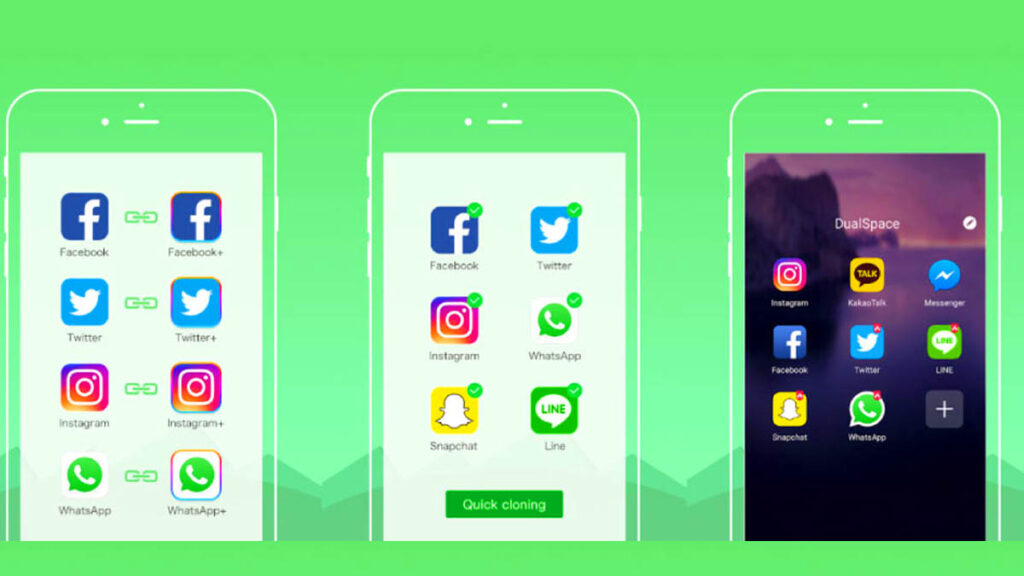
In these days demand for clone app development services has skyrocketed. Businesses seek efficient, cost-effective solutions to enter the market quickly, and clone apps offer a proven blueprint for success. By leveraging the popularity of existing applications, companies can save time, reduce risk, and ensure a high chance of user acceptance. In this comprehensive guide, we will delve into the intricacies of clone app development, highlighting its benefits, the development process, key features, and why partnering with a professional development team is crucial.
Understanding Clone App Development Services
The process of developing a clone app entails duplicating the features and functionalities of an already popular app. These apps are tailored to fit the unique requirements of a business while maintaining the core functionalities that made the original app popular. The main advantage of clone apps is their ability to quickly gain traction, as they are based on a tested and proven concept.
Types and Categories Clone App Development Services
Social Media App Clones
Social media app clones are replicas of popular platforms like Facebook, Instagram, or Twitter, customized to fit niche markets or specific user requirements.
E-commerce App Clones
These clones mimic e-commerce giants such as Amazon or eBay, providing a ready-to-use platform for online retail businesses.
On-demand Service App Clones
Apps like Uber or DoorDash can be cloned to offer various on-demand services, from ride-hailing to food delivery.
Real Estate App Clones
Real estate clones replicate apps like Zillow or Realtor, enabling users to buy, sell, or rent properties seamlessly.
Health and Fitness App Clones
Cloning apps like MyFitnessPal or Fitbit can help businesses launch health and fitness tracking platforms quickly.
Technical Specifications Required For Clone App Development Services
Frontend Development
The frontend involves technologies like HTML, CSS, JavaScript, and frameworks such as React or Angular to create a responsive user interface.
Backend Development
Backend development uses languages like Node.js, Python, or Ruby on Rails, ensuring robust server-side operations and database management.
API Integration
APIs are integrated to add functionalities such as payment gateways, social media logins, and third-party services.
Database Management
Databases like MySQL, PostgreSQL, or MongoDB are used to manage and store app data efficiently.
Security Measures
Implementing security protocols, such as SSL encryption, two-factor authentication, and regular security audits, to protect user data and ensure compliance with regulations.
Benefits of Clone App Development

1. Reduced Development Time and Cost
Creating an app from scratch requires significant time and resources. Clone app development significantly cuts down on both, allowing businesses to launch their apps faster and at a fraction of the cost. By leveraging existing designs and functionalities, developers can focus on customization rather than building from the ground up.
2. Proven Business Model
Clone apps are based on successful models, reducing the uncertainty and risk associated with new app launches. This proven business model ensures a higher likelihood of user acceptance and market success.
3. Quick Market Entry
Speed is crucial in the digital market. Clone app development enables businesses to enter the market swiftly, capturing the audience’s attention before competitors do. This quick market entry can be a decisive factor in gaining a competitive edge.
4. Customizability
While clone apps replicate core functionalities, they offer ample room for customization. Businesses can tailor the app to meet their specific needs, branding, and unique value propositions, ensuring that the final product stands out in the market.
The Clone App Development Process
1. Market Research and Analysis
The first step in clone app development is thorough market research and analysis. Understanding the target audience, competitors, and market trends is crucial for creating a successful clone app. This phase involves identifying the strengths and weaknesses of the original app to enhance and innovate upon them.
2. Defining Features and Functionalities
Based on the research, the next step is to define the features and functionalities of the clone app. This includes core features of the original app and additional unique features that will set the clone app apart from its predecessor.
3. Designing the User Interface (UI)
An intuitive and engaging UI is vital for the success of any app. The design phase focuses on creating a user-friendly interface that offers seamless navigation and an enjoyable user experience. This involves wireframing, prototyping, and designing the final UI.
4. Development and Coding
This phase involves the actual development of the app. Developers write the code, integrate functionalities, and ensure the app is robust and scalable. Utilizing agile methodologies, the development process is streamlined, allowing for iterative improvements and prompt issue resolution.
5. Testing and Quality Assurance
Rigorous testing is essential to ensure the app is free of bugs and performs optimally across various devices and platforms. This includes functional testing, performance testing, security testing, and user acceptance testing. Quality assurance ensures that the app meets the highest standards before launch.
6. Launch and Deployment
Once the app passes all testing phases, it is ready for launch. Deployment involves making the app available on app stores and other platforms. This phase also includes setting up analytics to monitor app performance and user behavior post-launch.
7. Post-Launch Support and Maintenance
After the app is launched, ongoing support and maintenance are crucial for its success. This includes regular updates, bug fixes, and enhancements based on user feedback. Continuous improvement ensures the app remains relevant and competitive in the market.
Key Features of Successful Clone Apps
1. User-Friendly Interface
A clone app must offer an intuitive and easy-to-navigate interface. A well-designed UI enhances user satisfaction and engagement, encouraging repeat usage.
2. High Performance
Performance is critical for user retention. The app should load quickly, run smoothly, and provide a seamless user experience without lags or crashes.
3. Security
Security is a top priority for any app. Clone apps must incorporate robust security measures to protect user data and prevent unauthorized access. This includes encryption, secure authentication, and regular security audits.
4. Customizable Features
While maintaining core functionalities, clone apps should offer customizable features that allow businesses to adapt the app to their specific needs and market requirements.
5. Scalability
As the user base grows, the app should be able to scale efficiently. Scalability ensures that the app can handle increasing traffic and data without compromising performance.
6. Integration Capabilities
Successful clone apps can integrate seamlessly with other platforms and services. This includes social media integration, payment gateways, and third-party APIs to enhance functionality and user experience.
Choosing the Right Clone App Development Company
Selecting the right development partner is crucial for the success of your clone app. Here are some factors to consider:
1. Experience and Expertise
Look for a development team with proven experience in clone app development. Their expertise will ensure that your app is developed using the best practices and the latest technologies.
2. Portfolio and Reviews
Examine the portfolio and client reviews of potential development partners. This will give you insight into their capabilities and the quality of their previous work.
3. Customization Capabilities
Ensure that the development team can offer extensive customization options to tailor the clone app to your specific business needs.
4. Post-Launch Support
Post-launch support is essential for the long-term success of your app. Choose a partner who offers comprehensive maintenance and support services.
5. Cost and Timeline
While cost is an important factor, it should not be the sole criterion. Consider the value and quality of the services offered. Additionally, ensure that the development timeline aligns with your business goals.
Final Thoughts
Clone app development services offer a strategic advantage for businesses looking to enter the market quickly with a proven concept. By replicating the success of popular apps and customizing them to fit unique business needs, companies can achieve significant cost savings, reduced development time, and a higher likelihood of market success. Partnering with a professional development team ensures that the clone app is built to the highest standards, offering a seamless, secure, and engaging user experience.
